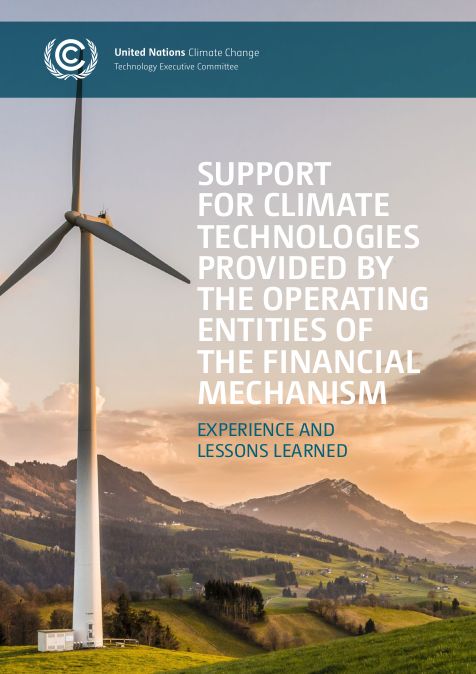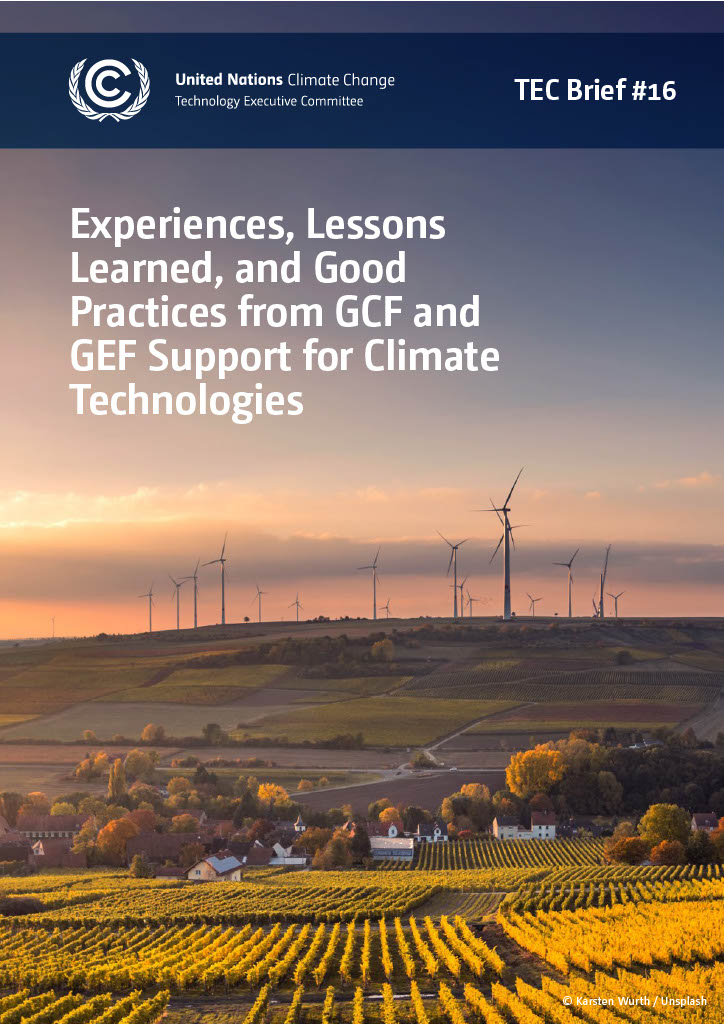Support
Technology Executive Committee
A PRACTICAL GUIDE: HOW DEVELOPING COUNTRIES CAN BE SUPPORTED FOR CONDUCTING & UPDATING THEIR TNAs
As the policy arm of the Technology Mechanism, the TEC continually analyzes technology needs assessments (TNAs) under the UNFCCC, monitors lessons learned and good practices from undertaking TNAs and implementation of their results, and develops guidance to support countries to enhance the effectiveness and utility of the TNA process.
In this context, the SBI invited the TEC to consider how developing countries can be supported in updating their TNAs and implementing their technology action plans and TNA outcomes (see FCCC/SBI/2022/10, para. 98). The TEC responded to this invitation by integrating it in its rolling workplan for 2023-2027, as part of its work on TNAs (Activity B.1.1).
This knowledge product provides practical guidance on planning and mobilizing support for conducting or updating a TNA. It offers key steps, considerations, country examples, and checklists to inspire countries in identifying climate technology needs and priorities and formulating implementation pathways. The TEC will test the usability of the knowledge product in 2026 through engagement with national focal points and partners. If you are interested in contributing to the testing, please contact us at tec@unfccc.int.
Note: This product is subject to change over time. For the most recent downloadable version click here.
Enabling implementation at scale: TEC analysis of success stories from implemented Technology Action Plans
A long-standing and evolving methodology under the UNFCCC, the technology needs assessment (TNA) has evolved into a step-by-step process that goes beyond technology needs and is geared towards enabling technology implementation and demonstrating technology viability, with a view to closing the gap between needs of developing countries and global support options. In this process, Technology Action Plans (TAPs) have been increasingly recognized as means to form a portfolio of nationally endorsed projects and programmes that can facilitate both action and support for the implementation of prioritized climate technologies.
In its rolling workplan for 2023-2027, the TEC has agreed to work on the analysis of success stories of implemented TAPs and identification of key elements of success, with a view to facilitate the undertaking and updating of TNAs, as well as enhancing the implementation of their results, and promote the links between the TNA and other relevant national processes on climate change.
This TEC analysis paper, developed in collaborations with the UNEP CCC, aims to identify common elements of success and effective approaches that led to the implementation of prioritized climate technologies in developing countries, identified or communicated through the TNA process and resulted TAPs. Drawing on the experience of six developing countries across three regions - Antigua and Barbuda, Armenia, Ghana, Grenada, Liberia and Pakistan - the analysis focuses on how TAPs are:
The analysis offers insights and practical findings that could inspire future efforts of developing countries and TAP implementation partners in advancing the implementation and scale up of prioritized technologies. |
Experiences and lessons learned from support for climate technologies provided by the operating entities of the Financial Mechanism of the Convention
With the adoption of the Paris Agreement in 2015, technology development and transfer were recognized as key enablers to contribute towards holding the increase in the global average temperature to well below 2 °C above pre-industrial levels, pursuant to efforts to limit the temperature rise to 1.5 °C. The Technology Framework adopted by the Parties in 2018 provides overarching guidance to the work of the Technology Mechanism to support the Parties in improving resilience to climate change and reducing GHG emissions. In this context, the TEC agreed to undertake an analysis of the experiences, lessons learned and good practices from the support provided by the GCF and GEF for technology development and transfer.
This technical paper builds on two earlier initiatives mandated by the UNFCCC to review support for technology development and transfer and finance provided in relation to the Poznan strategic programme (PSP). This technical paper assesses the experiences, lessons learned and good practices from the support for climate technologies provided by the operating entities of the Financial Mechanism, with a view to enhancing the operation of the Technology Mechanism and collaboration between the Technology Mechanism and the Financial Mechanism.
The technical paper assesses:
|
This policy brief:
|



